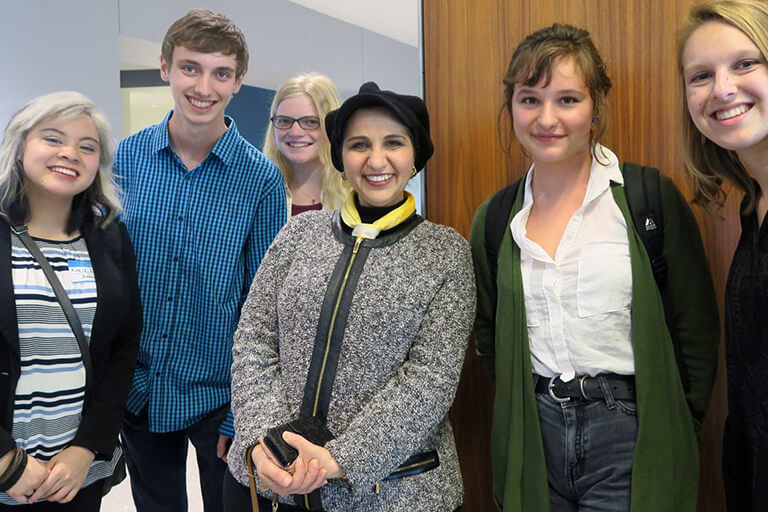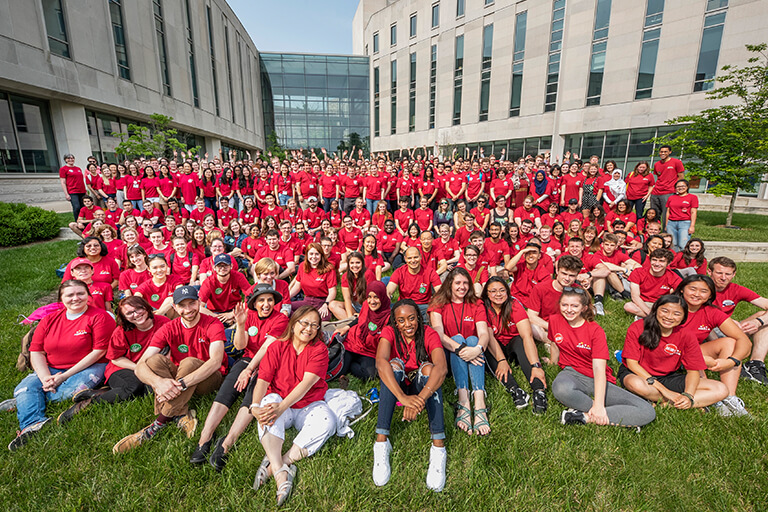Indiana University teaches over 70 languages—that’s more than any university in the United States. This means you can study everything from Arabic to Zulu and gain valuable insights into how other people and cultures see the world.
Language fluency is global fluency

Language Flagships
Master a critical language
Indiana University supports a nation-leading three US government Language Flagship programs, which provide instruction in Arabic, Chinese (Mandarin), and Russian. These programs only for undergraduate students.
Discover our flagship programs
Language Workshop
Learn through immersion
The Language Workshop is the most diverse program of its kind, offering eight weeks of intensive study in languages from Bosnian to Russian to Ukranian.
Explore the Language WorkshopCommunicate with the world
All Hamilton Lugar School majors are required to take at least four semesters of language study. Here is a sampling of the more than 80 languages taught at Indiana University (divided by region):
- Akan/Twi
- Bamana
- Swahili/Kiswahili
- Yoruba
- Zulu/IsiZulu
- Chinese (Mandarin)
- Japanese
- Korean
- Bosnian
- Croatian
- Czech
- Polish
- Romanian
- Russian
- Serbian
- Ukrainian
- Azerbaijani
- Estonian
- Finnish
- Hungarian
- Kazakh
- Kurdish
- Kyrgyz
- Mongolian
- Persian
- Tibetan
- Turkish
- Uyghur
- Uzbek
- Bengali
- Hindi
- Sanskrit
- Urdu
- Haitian Creole
- Quechua
- Yucatec Maya
- Arabic
- Egyptian–Middle (Hieroglyphic)
- Hebrew (Biblical and Modern)
- Burmese
- Indonesian
- Tagalog
- Thai
- Dutch
- Greek (Classical and Modern)
- Latin (Classical)
- Norwegian
- Yiddish
Description of the video:
Indiana University teaches more languagesthan any other university
in the United States.
From Arabic to Zulu, Bengali to Swahili.
”and everything in between” [in Arabic]
With more than 80 languages
offered, IU preserves
less commonly taught languages.
Leads the nation in instruction
of languages critical to national security
and global policymaking,
and prepares students
for an increasingly global
and interconnected world.
Indiana University students gain
valuable insights into how other people
and cultures see the world, allowing them
to not just communicate, but to listen.
In order to change the world.
We must first seek to understand it.
“Bring on Tomorrow”
[in Chinese]
“Bring on Tomorrow”
[in Yoruba]
“Bring on Tomorrow”
[in Russian]
Bring on tomorrow.


